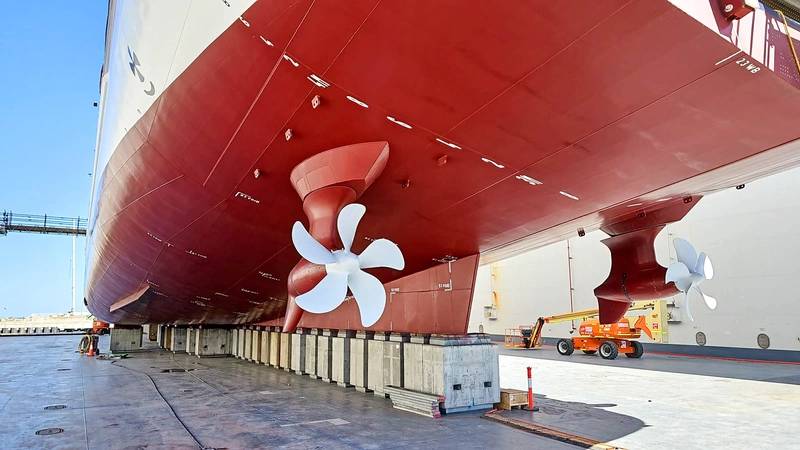Coral Expeditions Takes Up Hard Foul Release Technology Package
Graphene-based coatings manufacturer GIT Coatings (Graphite Innovations & Technologies Inc.) and Australian cruise line Coral Expeditions have entered into an agreement to use a combination of robotic hull grooming and graphene-based hard foul release coatings on the passenger vessel, Coral Adventurer, marking a first for the global cruise industry.
In April, the Coral Expeditions’ 120-passenger ship, Coral Adventurer, was initially coated with GIT’s graphene-based hard foul release coating. Its hull was coated with XGIT-FUEL and its propellers with XGIT-PROP.

XGIT-FUEL is a graphene-based hard foul release hull coating that creates an ultra-low friction surface to increase vessel efficiency, and its patented XGIT® technology secures a hydrated layer that deters the settlement and attachment of biofouling. It was also recently adopted by leading Finnish shipping passenger operator, Finnlines across its ro-ro and ro-pax fleets.
XGIT-PROP is a highly durable graphene-based hard foul release propeller coating that helps to improve vessel performance by keeping the propeller smooth over time. It is the most efficient and simplest way to improve CII ratings, says GIT Coatings. In March, leading dry bulk company, Pacific Basin, adopted the coating across their entire fleet.
During the application process, Coral Expeditions MD Mark Fifield emphasized the extended lifespan of coating and resulting reduced maintenance intervals and consistent performance throughout prolonged operational periods due to an ultra-low friction surface out of dock.
He also emphasized the importance of the biocide-free aspect of GIT Coatings sustainable foul release technology which does not leach any toxins such as copper and silicone-oils into the ocean. As well as the reduction of carbon emissions omitted to air to sea due to the low friction provided by the mechanical makeup of the performance paint.
Coral Expeditions was looking to use a biocide-free coating, paired with a grooming solution, to keep the hull free of fouling over time while adhering to biofouling regulations. Implementing this process resulted in the vessel spending less time in dry dock. Working in collaboration, GIT and Coral Expeditions curated a grooming schedule that was easy to maintain and aligned with the company’s operations.
The Australian Hull Biofouling Management Regulation which is now in effect, has established new requirements for managing biofouling on international vessels arriving in Australia. Operators of all vessels subject to biosecurity control will be required to provide information on how biofouling has been proactively managed prior to arriving in Australian territorial seas. All in aim to minimize the transfer of invasive species via ship hulls.
